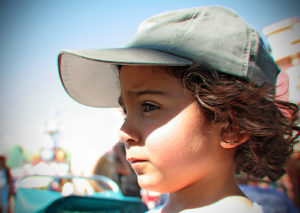
What Are Some of the Signs of Anxiety?
Sometimes, some of the signs of anxiety are not obvious.
Some people don’t realize that we all have anxiety, in fact we wouldn’t be alive if we didn’t have anxiety!
However, many individuals have high levels of anxiety yet it isn’t recognized until it becomes unmanageable or spirals into depression.
The good news about anxiety is that a lot of research has gone into this area of mental health and determined that Cognitive Behavioural Therapy (C.B.T) is an effective form of treatment.
If you are concerned that your child/youth may be experiencing signs of anxiety on a regular basis, it is important that you contact your doctor or consult with a Registered Counsellor or Psychologist.
Sometimes people have a fixed idea as to what anxiety looks like and think of it as the child who is clingy and cautious, not wanting to try anything new. However, the child who is bossing his/her younger sibling around and trying to control situations is also a child who could well be experiencing high anxiety.
Possible Physical symptoms:
- headaches
- stomachaches
- cries easily
- fidgety/nervous habits such as nail biting
- encropresis (soiling)
Possible Feelings:
- sad
- fearful
- worried
- panicked
- terror
- withdrawn
- angry
- nervous
Possible Behavioural symptoms:
- avoidance
- difficulty in going to sleep or staying asleep
- social withdrawal
- shyness, little eye contact, non-verbal (except with family members)
- perfectionistic tendencies
- excessive reassurance seeking
- easily overwhelmed, gives up easily, low frustration threshold
- resistance to change
- difficulty shifting tasks
- finds transitions hard
- inflexibility
- extremely self-conscious
- hyperactivity and difficulty sitting still
- attention seeking behaviours
- aggression
- distraction
- irritability
- oppositional and refusal behaviours
- temper tantrums
- angry outbursts
- clingy
- sensitive
- controlling
This list is not meant to be all encompassing and many of these symptoms are also symptoms of other psychological issues, but hopefully it gives you an idea of some of the signs of anxiety and how anxiety can manifest differently.
For example, when a child with anxiety (that’s not yet detected) is young, the parents may notice that he/she is sensitive to loud noises, doesn’t like to try new things, is emotionally-sensitive, reactive and quite defiant.
It may seem as though the child is just being difficult or oppositional and it may not be apparent that high anxiety is driving the behaviour.
Once the parents realize that a psychological issue, such as elevated anxiety, is behind the behaviour it can change the whole parenting style and understanding of the child.
Anxiety and Avoidance
Individuals with anxiety tend to be very sensitive and caring because they feel their feelings, and the feelings of others around them deeply.
They tend to be very empathetic and acutely aware of others and their environment.
Anxiety feels very uncomfortable in the body and therefore it is natural to want to avoid those feelings, thus stay away from anything that may create such feelings.
Normally, we listen to our bodies.
For example, if we accidentally touch a hot stove, we quickly remove our burnt hand. If we are approached by a stranger to get into his van to look for his “lost dog” we listen to our gut feelings and flee. This is when anxiety protects us.
However, with anxiety in non-emergency situations, avoidance strengthens its force. To reduce anxiety, we have to do what feels the least comfortable and go towards whatever is creating the anxiety, and in some cases keep practicing this over and over again.
However, first the child has to understand that the anxiety is not really indicating imminent danger. Fear = danger happening right now. Anxiety = a perceived threat that could happen in the future.
A child has to be on board for decreasing his/her anxiety, to be able to face it. This can be very challenging and in many cases, it’s helpful to have a licensed mental health professional assist with this process.
Confronting Anxiety
It is important not to overwhelm a child with too many highly anxious experiences all at once, but rather choose a target to work on.
Children with high anxiety usually need more scaffolding/support from a parent, than a child with less anxiety.
It’s important to take small, manageable steps, with support, toward the ultimate goal.
Counselling can be very effective in teaching anxiety management strategies, but these strategies also have to be practiced and used on a regular basis.
Anxiety is a powerful force and therefore the anxiety management strategies may need to be taught and re-taught, periodically, in order that the anxiety doesn’t take over again.
Warmly,
PS. Registration is now open for my September “Brain Science” groups (ages 7-9yrs. and 10-12yrs.) for teaching children about anxiety and anxiety management strategies. You can find out more information and register online
here and then click on “upcoming groups/events”.
I’d like to receive parenting tips and the free eBook: 8 Common Mistakes to Avoid When Your Child Is Anxious
PPS. For those of you who are in the Vancouver area and have an interest in classical music, the grand finale of the Blueridge Chamber Music Festival is happening tonight at 7pm at Mt. Seymour Utd. Church in North Vancouver.
Articles on Back-to-School Anxiety
How to Help Your Nervous Child Go Back to School
Tips and A Tool to Help Back-to-School Anxiety
How to Ease Your Child’s Back-to-School Worries
Preparing for the Night Before School Starts Anxiety
Linking the Separation for Separation Anxiety








